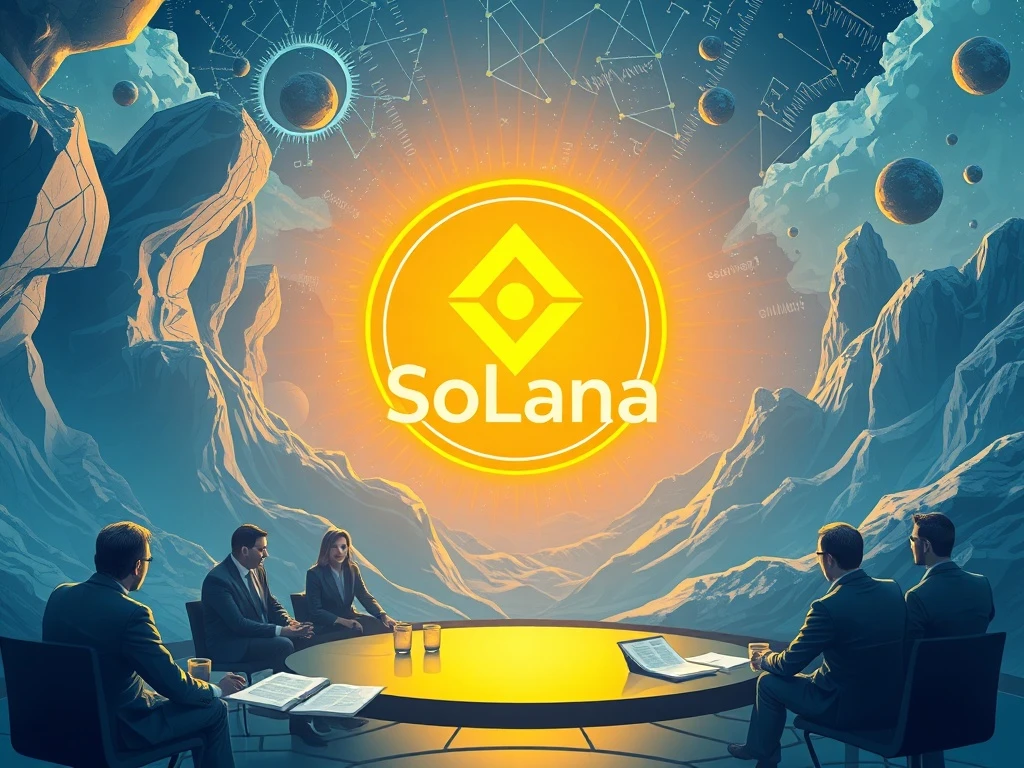Solana ETF Breakthrough: 7 Major Firms Overcome Regulatory Hurdles in Revised Applications

The cryptocurrency world is buzzing with excitement as seven major asset management firms have submitted revised applications for a spot Solana ETF. This pivotal development signals growing institutional confidence in SOL and could dramatically reshape the crypto investment landscape. But what does this mean for traders, investors, and the broader blockchain ecosystem?
Why the Solana ETF Matters Now
The race to launch the first Solana ETF has intensified, with Franklin Templeton, Fidelity, Grayscale and four other financial giants refining their proposals. This coordinated push comes at a crucial moment when:
- Bitcoin ETFs have already proven successful
- Ethereum ETF approvals appear imminent
- Regulators are showing increased willingness to engage with crypto products
Breaking Down the Solana ETF Approval Process
The path to SEC approval involves multiple stages:
| Stage | Description | Current Status |
|---|---|---|
| Initial Filing | Submission of S-1 application | Completed |
| SEC Review | Regulatory feedback and revisions | In Progress |
| Public Comment | Market participant input period | Pending |
| Final Decision | Approval/Rejection | Expected Q4 2025 |
Potential Impact on SOL Price and Adoption
Analysts predict several key effects if the Solana ETF gains approval:
- Increased institutional demand could drive SOL price upward
- Enhanced liquidity would benefit traders and investors
- Greater mainstream adoption of Solana blockchain technology
- Potential spillover benefits for Solana-based dApps and DeFi projects
Regulatory Hurdles: The Challenges Ahead
While the revised filings indicate progress, significant obstacles remain:
- SEC concerns about market manipulation in crypto markets
- Ongoing debate about whether SOL qualifies as a security
- Custody solutions for digital assets in traditional finance
- Volatility management for ETF products
What This Means for Crypto Investors
The Solana ETF developments represent more than just another financial product – they signal a maturing relationship between traditional finance and blockchain technology. For investors, this creates both opportunities and challenges:
Opportunities:
- New regulated access point to crypto markets
- Potential price appreciation from institutional inflows
- Validation of Solana’s technology and ecosystem
Challenges:
- Regulatory uncertainty during approval process
- Potential short-term volatility
- Need for thorough due diligence on Solana fundamentals
Frequently Asked Questions
When could the Solana ETF be approved?
Analysts estimate potential approval by Q4 2025, though the SEC’s timeline remains uncertain. The multiple revised filings suggest active dialogue between applicants and regulators.
How would a Solana ETF differ from Bitcoin ETFs?
While structurally similar, a Solana ETF would track a different underlying asset with distinct technological characteristics, staking considerations, and market dynamics.
What are the main regulatory concerns?
The SEC primarily focuses on market manipulation risks, custody solutions, and whether SOL should be classified as a security rather than a commodity.
How might this affect Solana’s DeFi ecosystem?
ETF approval could bring increased attention and capital to Solana-based DeFi projects, though it might also attract greater regulatory scrutiny to the ecosystem.
Should retail investors wait for ETF approval?
Investment decisions should be based on individual risk tolerance and investment horizon. While ETF approval could boost prices, it’s not guaranteed and other factors affect SOL’s valuation.









